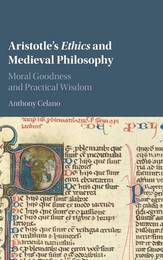
|
Aristotle's Ethics and Medieval Philosophy: Moral Goodness and Practical Wisdom
Hardback
Main Details
Description
Aristotle's Nicomachean Ethics had a profound influence on generations of later philosophers, not only in the ancient era but also in the medieval period and beyond. In this book, Anthony Celano explores how medieval authors recast Aristotle's Ethics according to their own moral ideals. He argues that the moral standard for the Ethics is a human one, which is based upon the ethical tradition and the best practices of a given society. In the Middle Ages, this human standard was replaced by one that is universally applicable, since its foundation is eternal immutable divine law. Celano resolves the conflicting accounts of happiness in Aristotle's Nicomachean Ethics, demonstrates the importance of the virtue of phronesis (practical wisdom), and shows how the medieval view of moral reasoning alters Aristotle's concept of moral wisdom.
Author Biography
Anthony Celano is Professor of Philosophy at Stonehill College, Massachusetts. He is the author of over forty scholarly articles on medieval and ancient philosophy, and is a member of the Leonine Commission, which is responsible for critical Latin editions of the works of Thomas Aquinas.
Reviews'Celano's textual analyses are laborious, and some features of his story may be considered stimulating insights. His construal of phronesis as primary to Aristotle's moral conception (viii), his emphasis on Albert's contribution to medieval moral thought ..., and his inclusion of the largely uncharted anonymous Erfurt commentary ... represent important contributions.' Katja Krause, Journal of the History of Philosophy
|